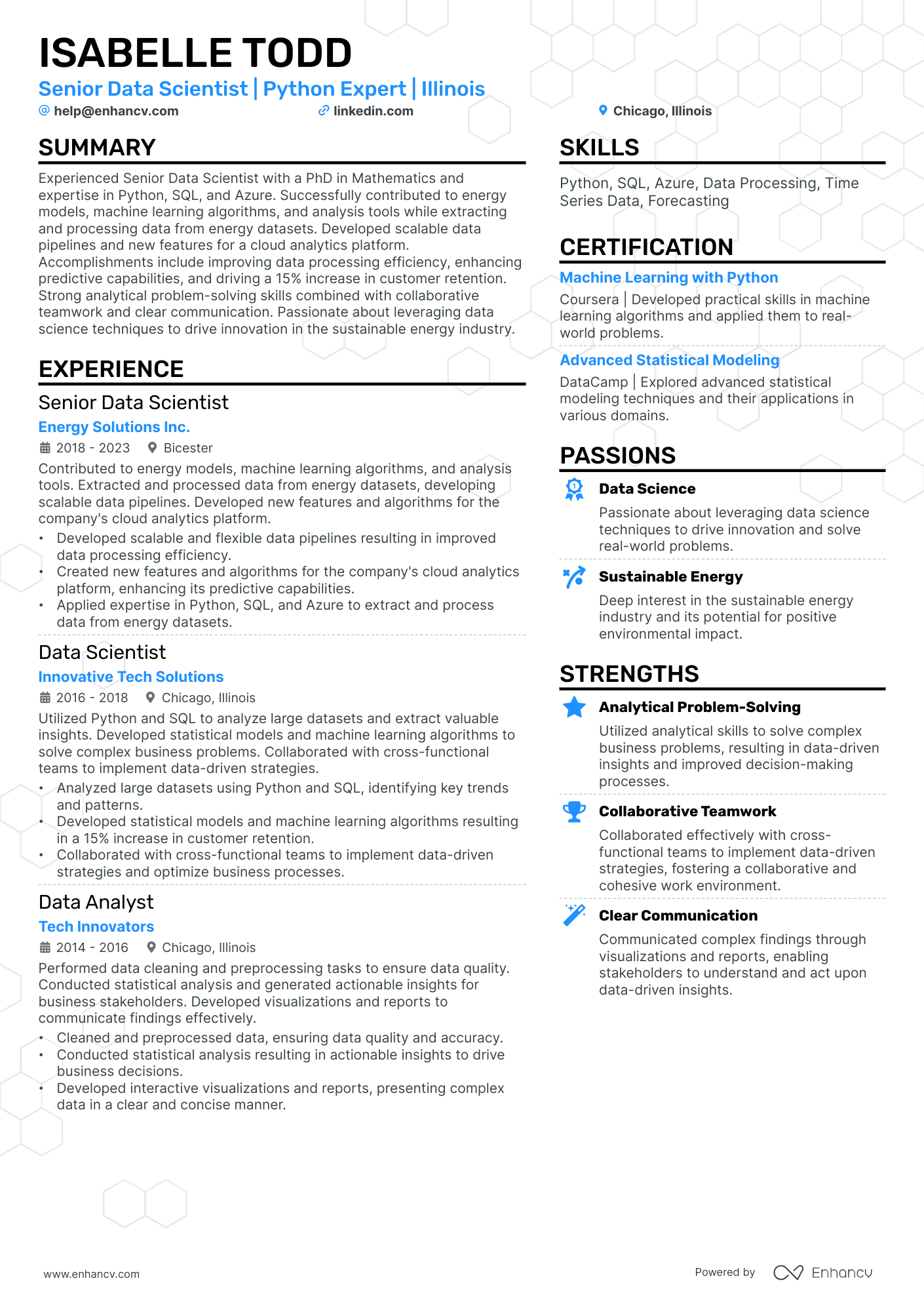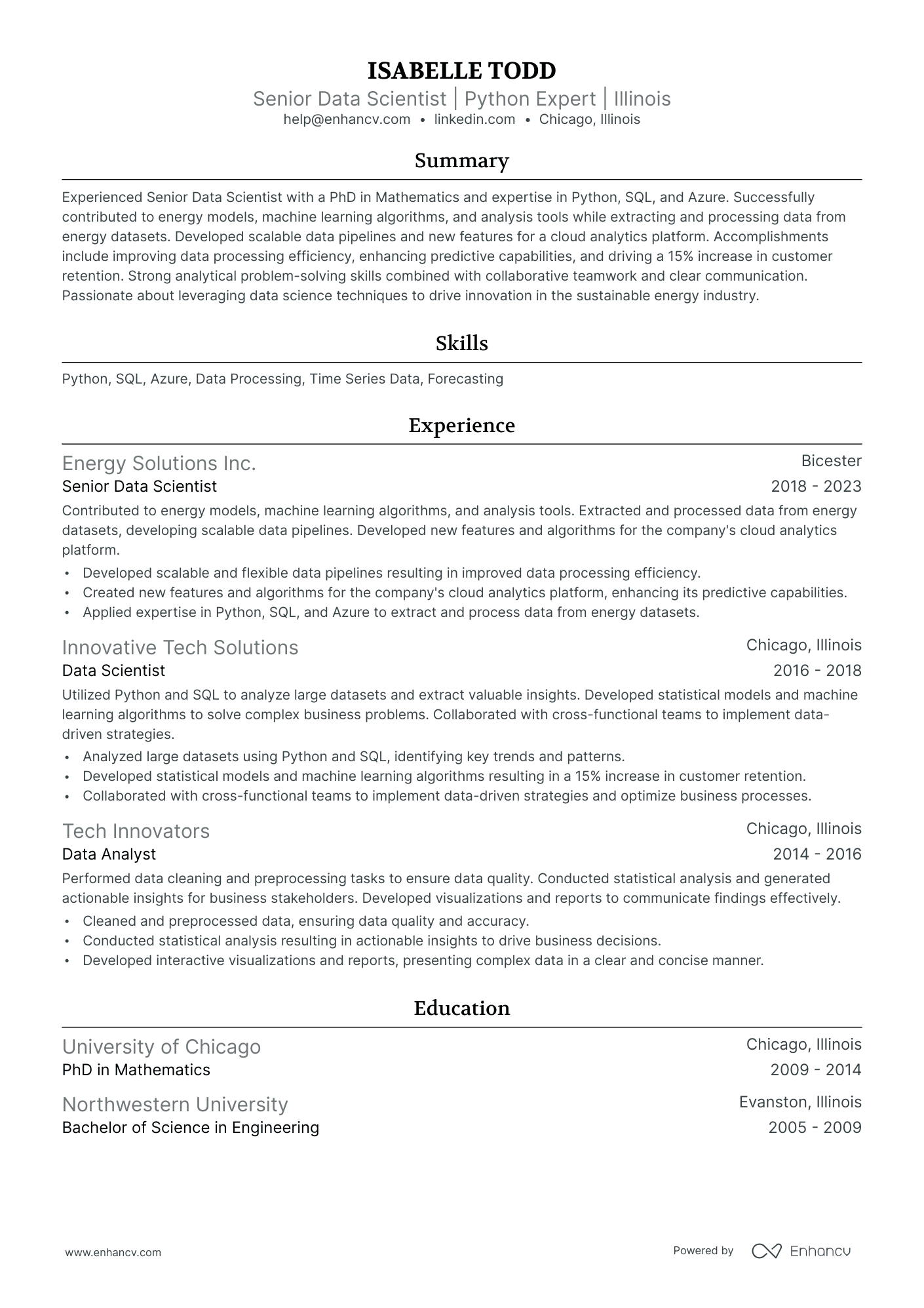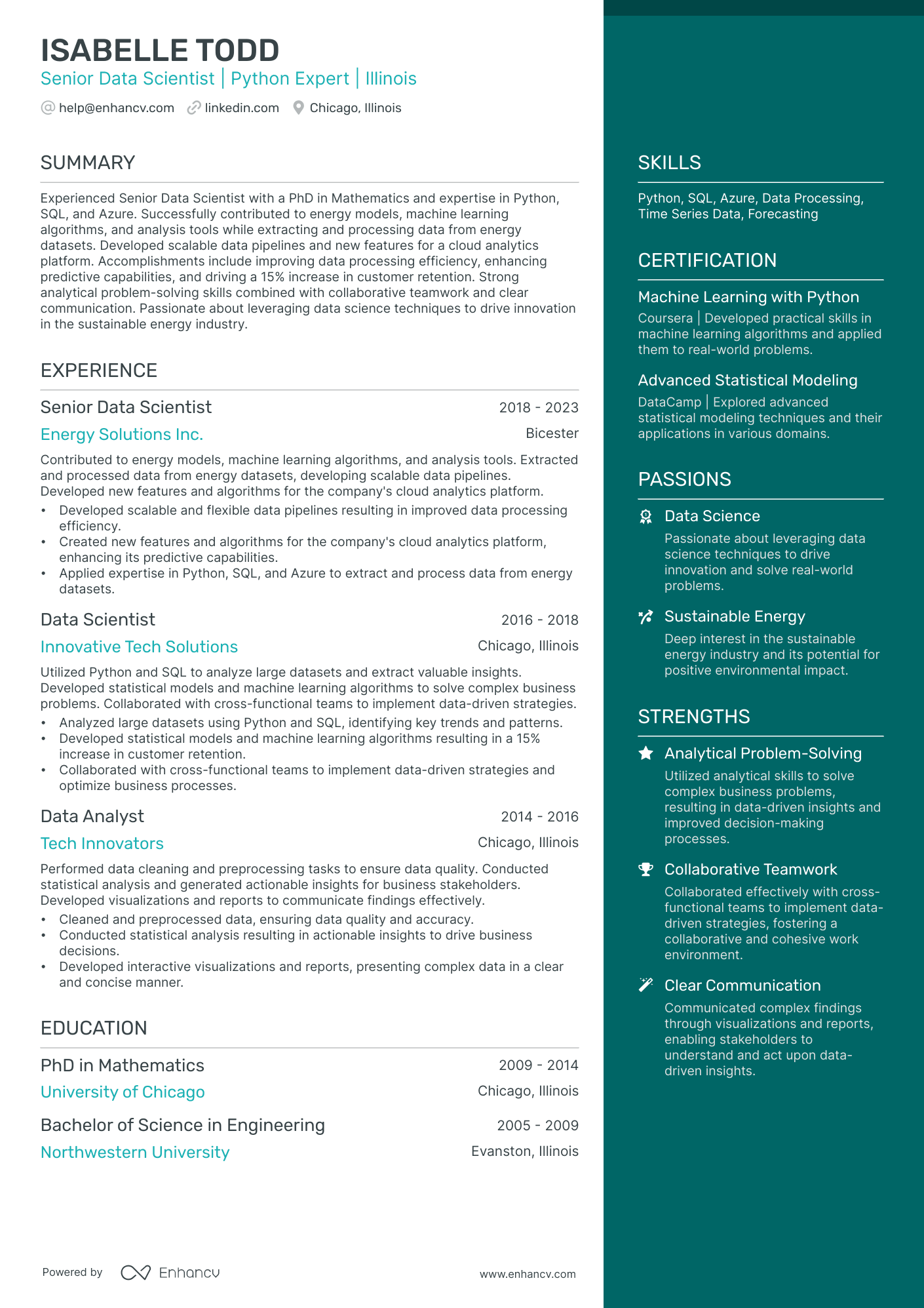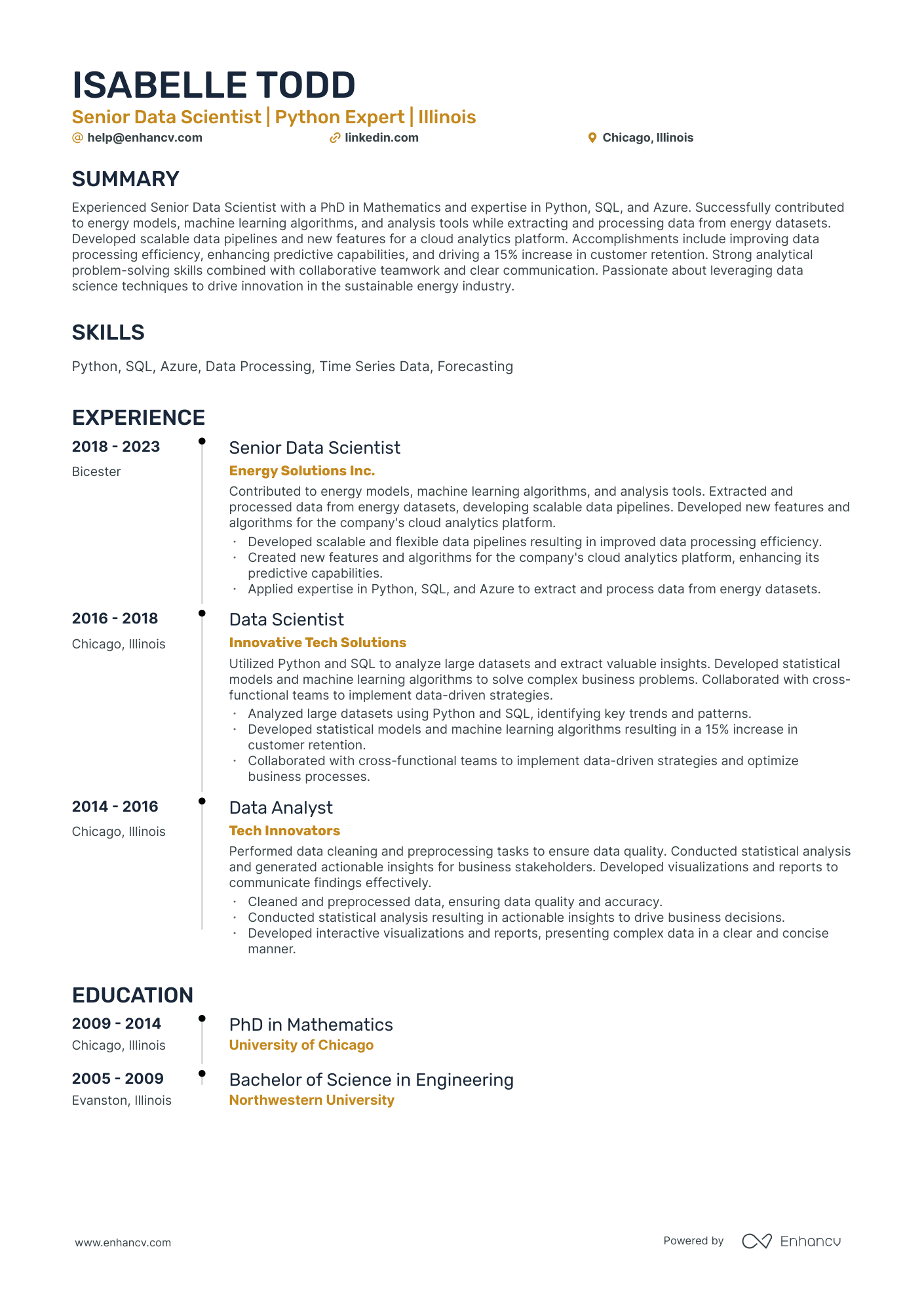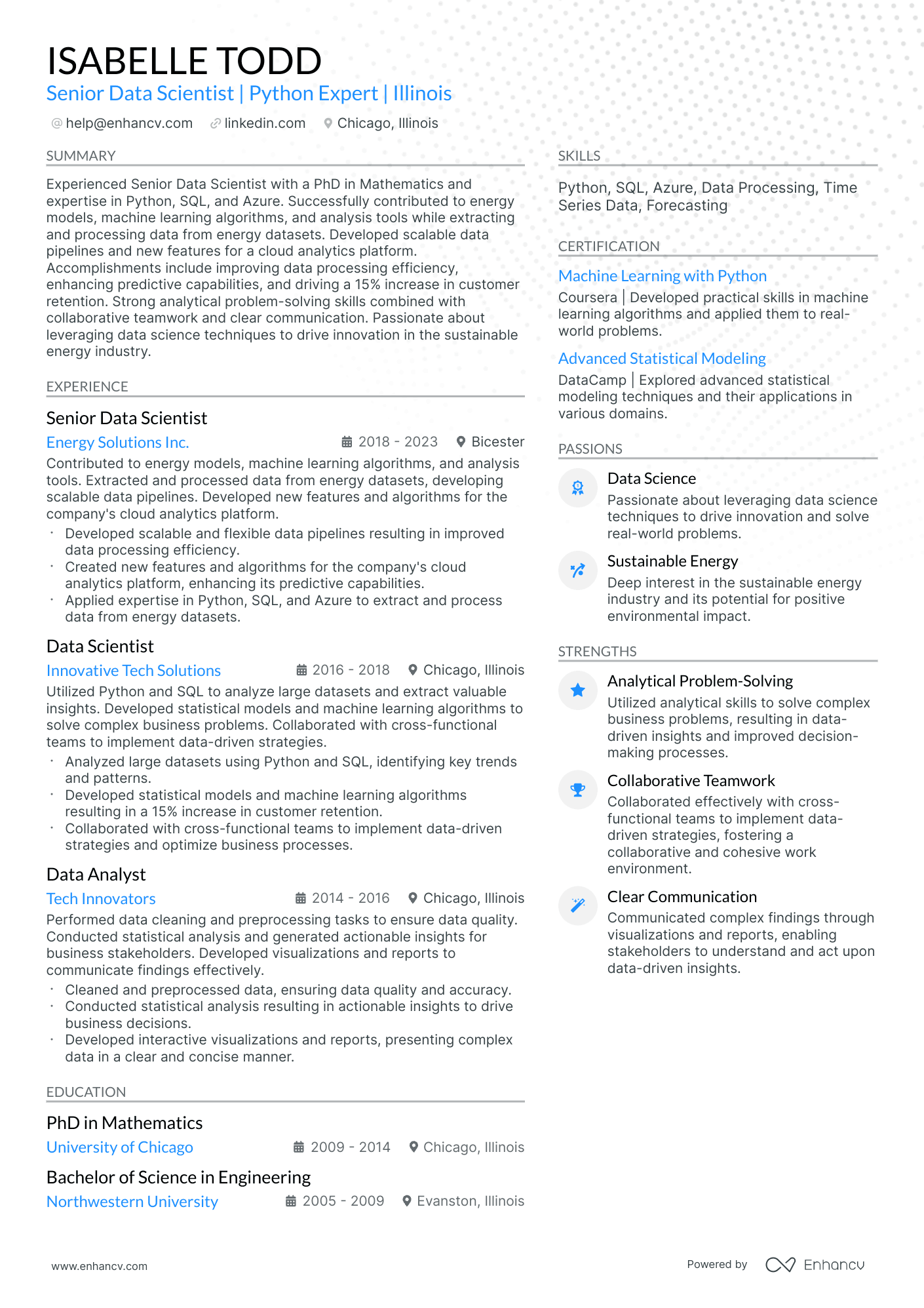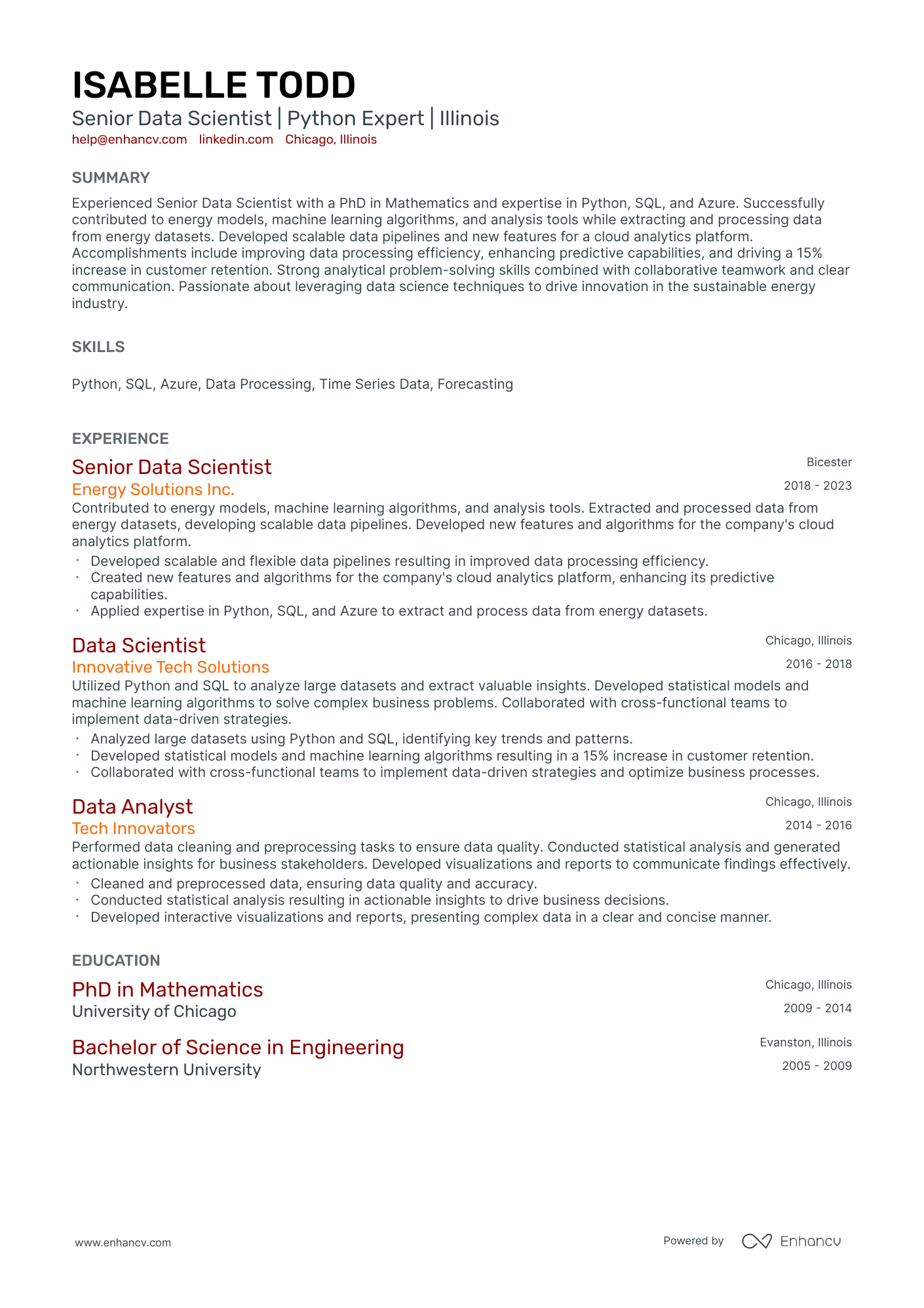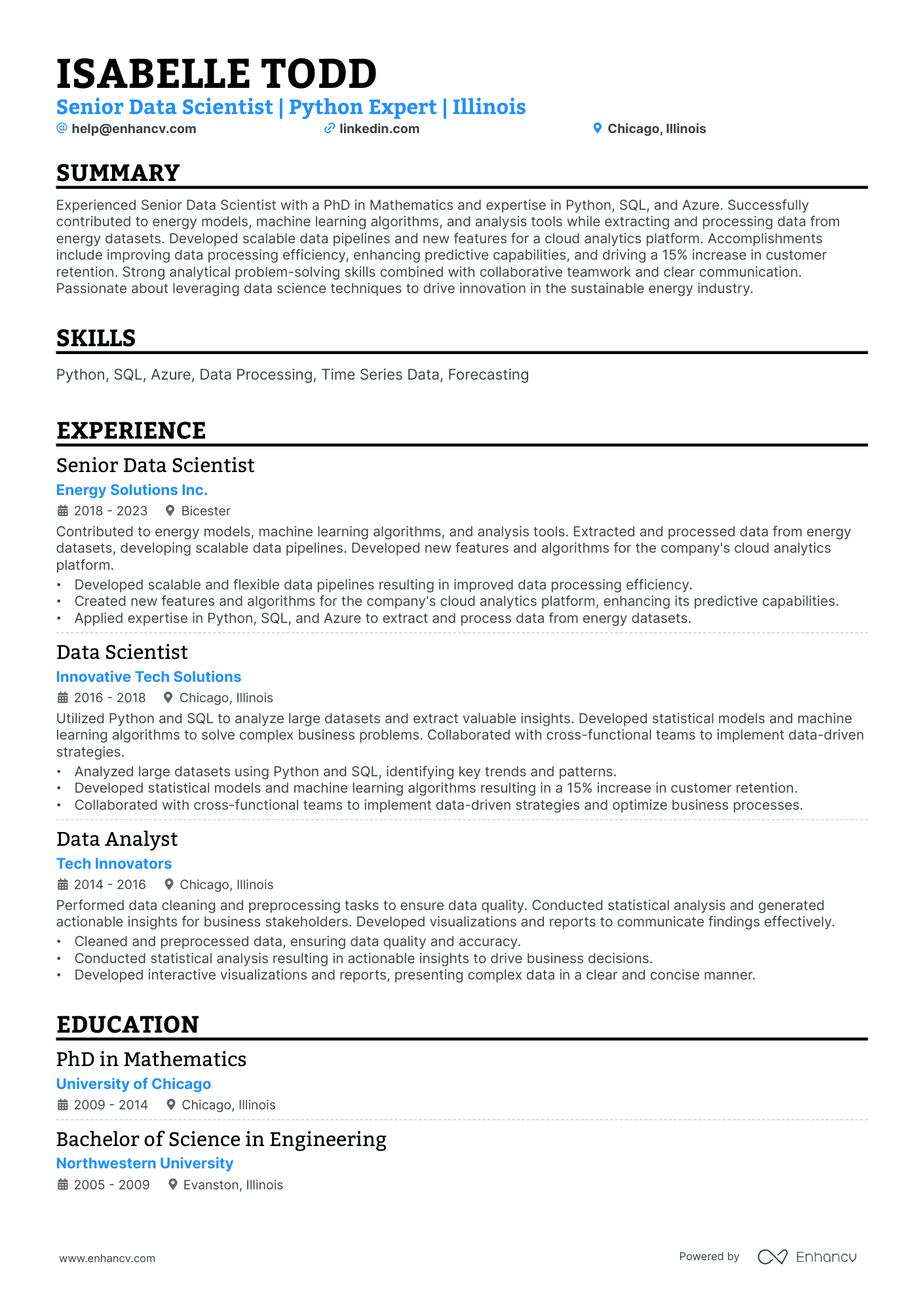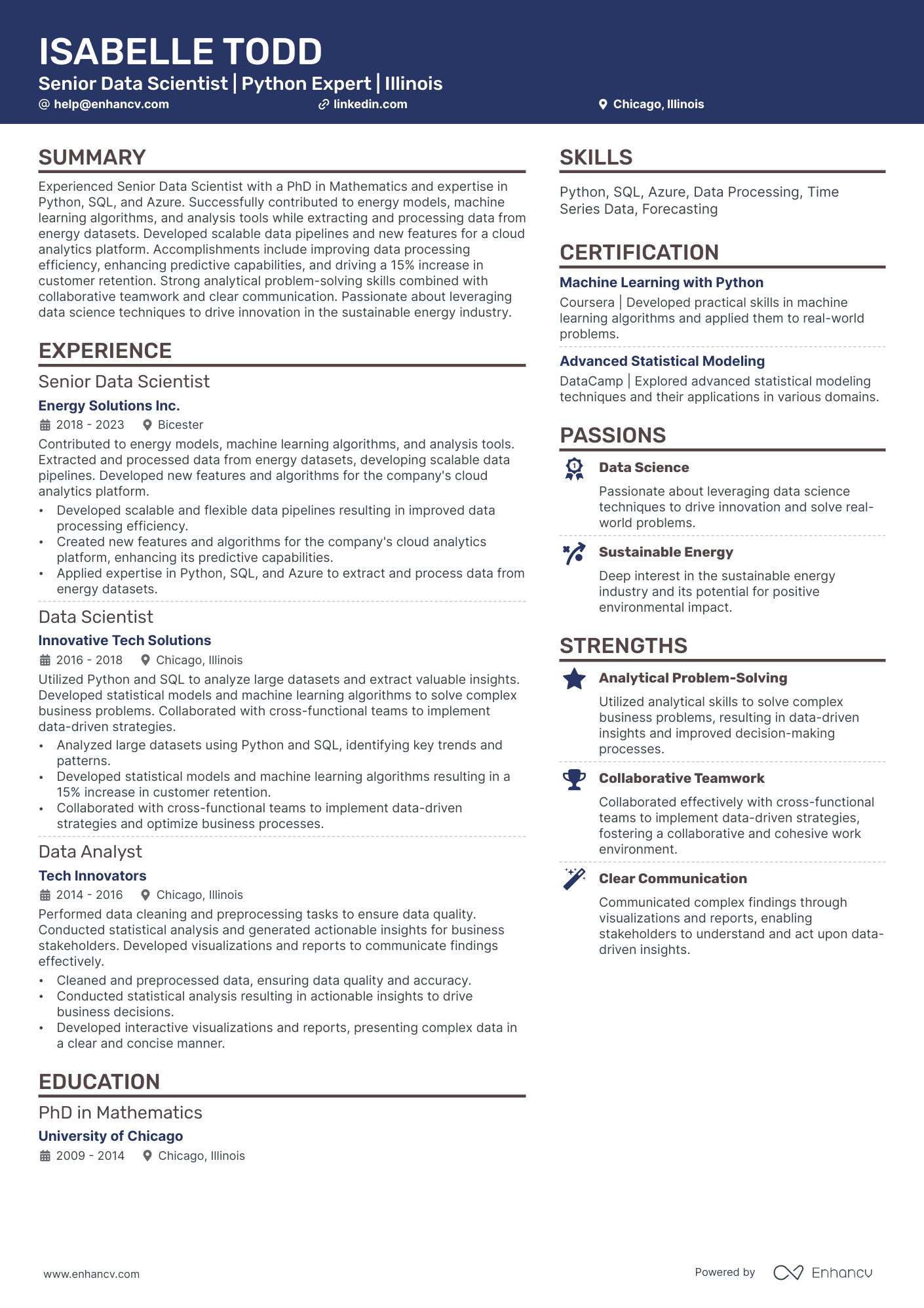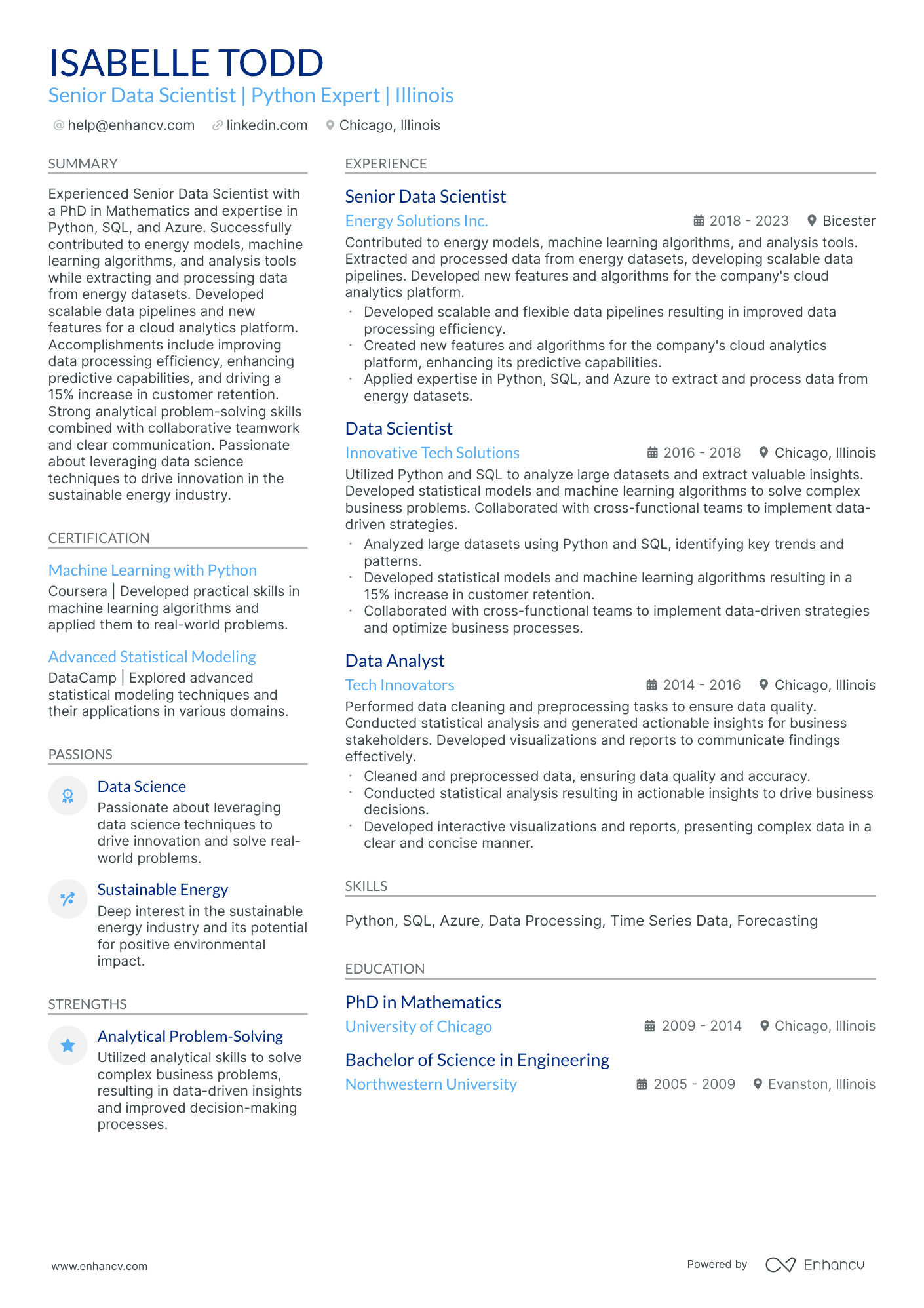Professional theatre professionals often struggle to consolidate their diverse and extensive experience into a concise, impactful resume. Our guide can assist by providing specific advice on how to effectively organize, highlight, and articulate your skills and experiences, thereby making your theatre-oriented resume stand out to prospective employers.
Dive into this guide to discover how to craft a compelling professional theatre resume:
- Explore top-tier professional theatre resume samples, spotlighting industry-leading skills and experiences.
- Uncover over ten tailored strategies to make your professional theatre resume resonate with the job description.
- Illuminate your unique value as a professional theatre candidate, using your professional achievements as a guide.
- Debunk the myth that education doesn't matter, and learn how to leverage your academic and certification credentials effectively.
Recommended reads:
Styling your professional theatre resume: layout and format
Pondering the ideal length for your professional theatre resume? Experts suggest keeping it between one and two pages. Opt for the two-page format if you boast over a decade of pertinent experience. Moreover, the resume format you choose is pivotal in showcasing your experience. Consider the:
- Reverse-chronological resume format to spotlight your career journey;
- Functional skill-based resume format if you're light on experience but want to emphasize skills;
- Hybrid resume format to provide recruiters a comprehensive view of both your experience and skills.
Here are some additional tips for your professional theatre resume layout:
- Keep your headline straightforward: mention the job you're targeting, a notable certification abbreviation, or your professional specialty;
- Always customize your professional theatre resume for the specific role, aligning job requirements with your experience in various resume sections;
- After finalizing your resume, save it as a PDF (unless instructed otherwise) to maintain its readability and layout consistency.
Think about the market’s preferences – a Canadian resume, for instance, could have a different layout.
Upload your resume
Drop your resume here or choose a file. PDF & DOCX only. Max 2MB file size.
Pro tip
While color can enhance your professional theatre resume by emphasizing key details like headlines, job titles, and degrees, moderation is key. Stick to a primary and a secondary color to maintain professionalism and avoid a cluttered appearance.
Essential sections for a standout junior ux designer resume:
- The top section should combine your header—with accurate contact details—and a concise summary or objective that encapsulates your professional achievements.
- An experience section that chronicles your career trajectory and how each role contributed to your professional development.
- Highlight significant achievements that demonstrate the practical application of your skills, leading to tangible results.
- Include industry-recognized certifications to underscore your technical proficiency or interpersonal skills.
- Detail your educational background relevant to the field.
What recruiters want to see on your resume:
- Performance Experience: Previous roles played, types, and sizes of productions you've been involved in, showcasing range and versatility.
- Training/Education: Any relevant acting classes, workshops, or degrees in theater or performing arts.
- Special Skills: Unique abilities such as singing, dancing, acrobatics, playing musical instruments, etc.
- Physical Characteristics: Height, weight, and other physical features that may be pertinent to certain roles.
- Professionalism/Recommendations: Evidence of reliability, punctuality, teamwork, and positive references from previous directors or co-actors.
Recommended reads:
How to create the cornerstone experience section of your professional theatre resume
A meticulously crafted professional theatre resume experience section is a recruiter's delight. This segment not only responds to job criteria but also throws light on your technical expertise and character.
To craft an impactful experience section:
- Highlight roles directly related to the position in question.
- Pair each role or task with a metric that quantifies your achievements.
- Chronicle your professional theatre career progression, illustrating your dedication and growth in the domain.
- For each role, elucidate challenges faced, strategies employed, and the broader organizational impact.
Examine the following professional theatre samples to discern how seasoned professionals have articulated their experiences:
- Designed and executed lighting plots for 20+ theatrical productions, enhancing the visual experience for audiences.
- Managed a team of 10 technicians, coordinating their schedules and ensuring smooth execution of stage setup and strikes.
- Collaborated with directors and set designers to create immersive and dynamic stage environments.
- Coordinated auditions and callbacks, resulting in casting suitable actors for various roles in 15+ plays and musicals.
- Supervised costume fittings and alterations for a diverse cast of performers, ensuring cohesive and accurate character representations.
- Managed budgets and sourced materials, optimizing cost-efficiency without compromising production quality.
- Directed and choreographed large-scale musical productions, overseeing all aspects from auditions to final performances.
- Implemented innovative marketing strategies, resulting in a 30% increase in ticket sales and sold-out shows.
- Led rehearsals and provided constructive feedback to actors, elevating performances and creating memorable experiences for audiences.
- Managed a team of 15 stagehands, ensuring efficient load-in, scene changes, and load-out during 50+ theatrical productions.
- Implemented safety protocols and training sessions, resulting in a 50% reduction in on-stage accidents and injuries.
- Collaborated with production designers to solve technical challenges, achieving seamless and visually stunning sets.
- Designed and constructed intricate set pieces using various materials, enhancing the overall visual impact of 30+ theatrical productions.
- Managed scenic budgets and material sourcing, optimizing cost-efficiency while maintaining high production values.
- Collaborated with directors and scenic artists to bring conceptual designs to life, resulting in immersive and captivating stage environments.
- Produced and coordinated a series of successful site-specific theatre events in unconventional venues, attracting new audiences and generating positive media coverage.
- Managed marketing campaigns across digital and traditional platforms, resulting in a 40% increase in ticket sales.
- Negotiated contracts with performers and vendors, ensuring cost-effective solutions for production needs.
- Designed and executed soundscapes and effects for 25+ theatrical productions, enhancing the auditory experience and supporting storytelling.
- Collaborated with composers and musicians to create original scores, resulting in unique and memorable productions.
- Managed sound equipment inventory and maintenance, ensuring optimal audio quality for every performance.
- Coordinated the technical aspects of 30+ theatrical productions, overseeing lighting, sound, set, and costume departments.
- Developed and implemented efficient production schedules, resulting in streamlined workflows and timely completion of projects.
- Collaborated with artistic and technical teams to ensure artistic vision alignment and successful realization of creative concepts.
- Assisted in stage management duties, including organizing rehearsals, cue execution, and prompt book supervision for 20+ theatre productions.
- Coordinated communication between cast, crew, and creative team, ensuring smooth operation and adherence to production schedules.
- Facilitated backstage operations during performances, troubleshooting issues and providing support to the production team.
- Designed and executed projection designs for 15+ theatre productions, integrating multimedia elements to enhance visual storytelling.
- Collaborated with scenic and lighting designers to create cohesive and immersive stage environments.
- Managed projection equipment setup and operation, troubleshooting technical issues and ensuring seamless integration into productions.
Quantifying impact on your resume
<ul>
Building a professional theatre resume when experience is sparse
If you're light on relevant experience, consider highlighting:
- Short-term roles or internships undertaken during your academic years.
- Contractual roles, emphasizing their relevance and the outcomes achieved.
- Alternative resume formats, such as functional or hybrid, that spotlight your skills.
- Research roles, especially if they involved significant projects or if your contribution was pivotal to the project's success.
Recommended reads:
Pro tip
The experience section is all about relevancy to the professional theatre role. Decide on items that will show your expertise and skills in the best possible light.
Highlighting your hard and soft skills on your professional theatre resume
The skills section of your professional theatre resume should showcase your capabilities that align with job requirements.
Your hard skills, or technical skills, demonstrate your proficiency with technological innovations and specific software. On the other hand, your soft skills illustrate how you'd excel in the workplace environment with personal attributes like resilience, negotiation, and organization.
For a well-rounded professional theatre resume, it's essential to include both. Here's how to craft a standout skills section:
- Prioritize skills listed at the top of the job advert.
- Highlight unique skills you've honed over time.
- Choose soft skills that resonate with the company or department culture.
- Address essential job requirements by listing key skills for the professional theatre role that haven't been mentioned elsewhere in your resume.
Check out our sample skill list for professional theatre to get ideas on the most sought-after hard and soft skills in the industry.
Top skills for your professional theatre resume:
Stagecraft
Lighting Design
Sound Design
Costume Design
Set Design
Stage Management Software
Theatrical Makeup Techniques
Script Writing Software
Projection Mapping
Theatrical Rigging
Creativity
Collaboration
Communication
Problem Solving
Time Management
Adaptability
Leadership
Attention to Detail
Emotional Intelligence
Critical Thinking
Pro tip
Targeting the needed job ad skills doesn't have to end with the skills section. You can talk about your related certifications, interests or additional experience via projects or volunteering, where you picked up those skills, too.
Highlighting your educational and certification milestones on your professional theatre resume
While skills alignment is increasingly prioritized, your educational background and certifications still play a pivotal role in establishing credibility.
To effectively present your academic and certification achievements:
- Detail your educational journey, including the institution and duration.
- Highlight recent and relevant certifications, showcasing your commitment to continuous learning.
- Be concise; focus on the skills and knowledge gained rather than exhaustive details.
- If a certification is in progress, mention the expected completion date.
Remember, authenticity is key. If a certification is pending, be transparent about it.
Best certifications to list on your resume
Pro tip
If you have basic certificates, place them in the skills or experience section. This saves space for high-demand industry certificates.
Recommended reads:
Choosing the right professional theatre resume summary or objective
The top section of your resume is pivotal. It should encapsulate your alignment with the job, your unique skill set, and your professional expertise.
Both the resume summary and resume objective can serve this purpose:
- Use the resume objective to spotlight your current achievements and future aspirations. Highlight how you envision your growth in the prospective role.
- Opt for the resume summary to succinctly present your most relevant professional highlights. Aim for brevity, ideally within five sentences.
Ultimately, these sections offer a glimpse into your professional persona and the unique value you bring.
Resume summary and objective examples for a professional theatre resume
Optimize your resume summary and objective for ATS
Drop your resume here or choose a file.
PDF & DOCX only. Max 2MB file size.
Additional professional theatre resume sections for a personalized touch
To further personalize your professional theatre resume, consider adding sections that reflect your unique qualities and achievements.
Popular choices include:
- Projects to showcase significant work achievements.
- Languages to indicate proficiency levels.
- Awards to celebrate industry recognitions.
- Hobbies and Interests to share personal passions.
Key takeaways
- Format your professional theatre resume for clarity and coherence, ensuring it aligns with the role.
- Highlight key sections (header, summary/objective, experience, skills, certifications) within your professional theatre resume.
- Quantify achievements and align them with skills and job requirements.
- Feature both technical and personal skills across your resume for a balanced portrayal.
